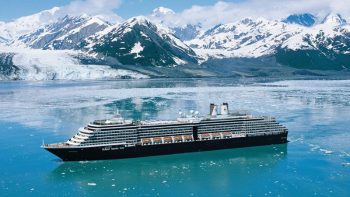Data and analytics company GlobalData says that slower travel methods are set to become a global phenomenon - and the next big tourism trend as sustainability becomes a driving factor of consumer decisions.
‘Slow travel,’ mainly refers to the speed at which a trip is taken – where travellers take a train through Europe rather than flying, for example. However, it also has a broader meaning of tourists staying in destinations for extended amounts of time, emphasizing a connection with local people, culture, food and music. According to the report, tourists are opting for longer stays due to their ability to work remotely. In addition, sustainability is now featuring more heavily in travel decisions.

Various consumer trends already suggest that slow travel could take off post-pandemic.
“A trip longer than ten nights is more highly desired (22 per cent) than a day visit (10 per cent) or short break away from one to three nights (14 per cent) according to a live poll from GlobalData,” says Johanna Bonhill-Smith, Travel & Tourism Analyst at GlobalData. “The added hassle and cost of additional COVID-19 related travel requirements such as PCR tests and potential quarantine periods means that short trips lose value, justifying a longer trip.”
The pandemic also produced a larger remote workforce across the globe. Over 70 per cent of global respondents opted to work remotely full time or have a mixture of both remote and office work, according to another GlobalData poll. Many offices are likely to be more flexible regarding working hours and the location of an employee as a result of the pandemic, meaning blending work and leisure will be easier for employees, and stays will have the opportunity to be longer.
With travellers spending more time in each location they visit, slow travel has the potential to be more sustainable for both local communities, and the environment, which is important, considering that ‘supporting social causes’ was identified as a key driver in product purchases for 25 per cent of global respondents in GlobalData’s consumer survey.
Preference for products can reflect on service trends and this identifies that consumers may feel more inclined to support local communities post-pandemic, which is a gap that ‘slow travel’ can fill.
“This niche trend reflects consumers’ growing desire for more experiential forms of travel, going above and beyond the hordes of tourists gathered for sun, sea and sand,” says Bonhill-Smith. “Its potential growth could further rival the concept of mass tourism and the all-inclusive package holiday concept in travel’s recovery post-COVID-19.”





